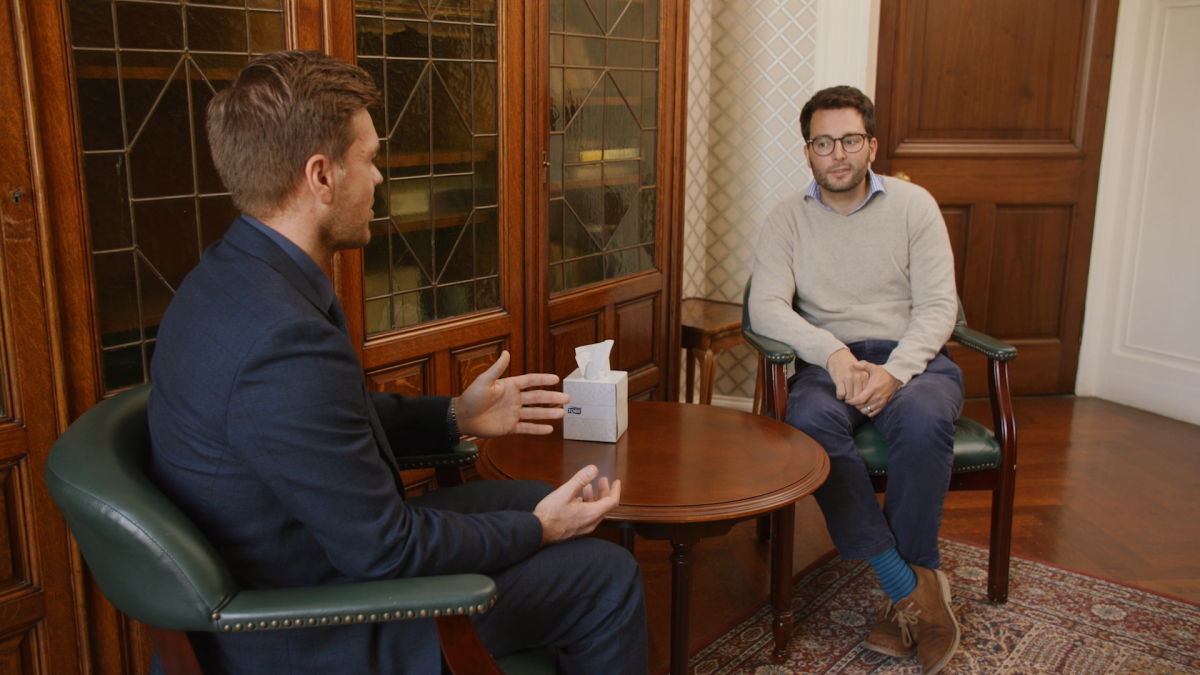
DBT at Castle Craig
Table of Contents
What is Dialectical Behaviour Therapy?
Dialectical Behaviour Therapy – or DBT as it is often known – is a type of talking therapy designed to help people who feel emotions particularly intensely and who struggle to regulate their emotions.
It can help you to accept and manage difficult feelings and learn new skills to cope with painful emotions rather than becoming overwhelmed by them.
DBT was initially developed in the 1980s by psychologist Marsha Linehan to help people with borderline personality disorder, who often struggle to manage their emotions due to their illness. Since then DBT has been used more widely and has been proven to be beneficial for people with depression, eating issues, and substance use disorders.1
Developed from cognitive behavioural therapy techniques, DBT involves examining and challenging thoughts and beliefs. The “dialectics” part refers to exploring opposite perspectives to situations, and considering whether both perspectives could potentially be true at the same time.2
Noticing different viewpoints can help us move from rigid, all-or-nothing type thinking, to a more flexible cognitive position, where various options start to seem possible rather than only one.
Acceptance and Change in DBT
Acceptance:
Learning to notice how you feel, and understanding why you do the things that you do, are key parts of DBT. Many people come to realise that their behaviour has been a way to cope with difficult emotions. Once they recognise this, these behaviours begin to make sense, even if they don’t like what it is that they do.3
Change:
When you understand why you do the things you do, it becomes easier to think about different ways to respond to difficult feelings. Working with a therapist can help you come up with alternative, less damaging solutions.3
The Four Modules of DBT
There are four main elements within DBT.
Distress tolerance
Here you will learn how to tolerate discomfort and distress, without always needing to act on uncomfortable feelings. Strategies might include finding ways to distract yourself or doing activities that you have previously found calming, such as taking a walk or listening to a certain piece of music.
Emotional regulation
Finding new ways to manage emotions is at the core of DBT. A key step will be learning to notice, identify, and name your different feelings.
Mindfulness
This involves learning to live in the present moment and avoid becoming caught up in past or future anxieties. Mindfulness teaches us to observe our thoughts, accept that thoughts come and go, and realise that we don’t always need to react to them.
Interpersonal effectiveness
This element helps to build more effective communication with other people, manage conflicts, set boundaries, and express needs.
How DBT Helps With Addiction
Given its focus on teaching skills to manage intense emotions and tolerate distress, DBT can be a particularly useful therapeutic modality for people struggling with drug and alcohol addiction, and this has been supported by research.4
- Noticing and understanding thoughts and feelings can eventually decrease their influence over you, and consequently reduce your impulsive reactions.
- Developing distress tolerance skills can help to manage discomfort from withdrawal or cravings, without resorting back to previous, unwanted ways of coping.
- Emotional regulation techniques teach you to recognise triggers and respond to them in a more measured way rather than impulsively reacting.
In these ways, DBT equips you with practical skills to take with you after treatment to help with navigating any setbacks and maintaining recovery.
DBT at Castle Craig
Our highly skilled therapists use DBT throughout treatment to help you manage your emotions and learn different coping strategies.
DBT is delivered via a group format, and at first you will attend the foundation stage of the programme. Here you will learn survival skills to help with managing emotional crises as and when they occur. Then you will progress to the advanced DBT skills group, and learn about ways to regulate your emotions.
There will be opportunities to practise the skills both within sessions and outside of them. Staying in our residential treatment facility means you will have ongoing support, as well as being away from any people or places that might trigger relapse.
We also offer DBT as part of our outpatient treatment options at CATCH Recovery, our outpatient centre. Whether you’ve already completed treatment in a residential clinic or are unable to commit to a stay in a residential facility, our specialist addiction therapists are available to help.
Meet Our DBT Specialists
Our DBT specialists are keen to meet you and share their expertise in dealing with addiction. Each specialist on our team has a unique blend of qualifications, and through years of experience, can tailor therapy to each patient’s needs. We understand the importance of building a strong rapport with patients and fostering an environment where you feel heard, understood, and respected.

Craig Chalmers is a person-centred therapist originally from Edinburgh. Craig specialises in addiction, and holds qualifications from COSCA, BACP, and PERSONA, with additional training in DBT, Trauma, and Mindfulness.
Having personal experience in addiction recovery, Craig has significant expertise in working with the 12 Step programme. He has also worked extensively with men who have experienced childhood sex abuse and other traumas.
As a therapist, Craig brings warmth and passion to his work, ensuring that his patients feel fully heard and understood. He is dedicated to forming genuine connections and helping individuals on their recovery journey.
Do you want to learn emotional coping strategies that don’t involve alcohol or drugs?
Don’t let addiction define your emotions any longer. At Castle Craig, we are here to guide you toward a life of healing, strength, and renewed purpose.
We understand that your journey is unique, and so is your treatment plan. We personalise our approach to meet your specific needs, empowering you to break free from the cycle of addiction.
-
References
- PsychCentral. Dialectical Behaviour Therapy (DBT): What Is It? https://psychcentral.com/lib/an-overview-of-dialectical-behavior-therapy#dbt-and-you [Accessed 15 July 2024].
- Mind. What is dialectical behaviour therapy (DBT)? https://www.mind.org.uk/information-support/drugs-and-treatments/talking-therapy-and-counselling/dialectical-behaviour-therapy-dbt/. [Accessed 15 July 2024].
- Counselling Directory. Dialectical Behaviour Therapy. Available here. [Accessed 15 July 2024].
- Cavicchioli M, Movalli M, Vassena G, Ramella P, Prudenziati F, and Maffei C. The therapeutic role of emotion regulation and coping strategies during a stand-alone DBT Skills training program for alcohol use disorder and concurrent substance use disorders. Addictive Behaviors. 2019;98. https://www.sciencedirect.com/science/article/abs/pii/S0306460319304368?via%3Dihub [Accessed 15 July 2024].
Experts You Can Trust
With a wealth of knowledge and services to help you regain control of your life, request a call-back from one of our professionals today. The choice you make today could change your life forever.